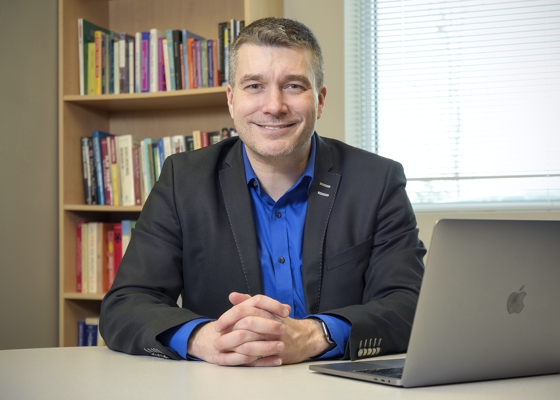
A University of Regina psychology professor is conducting a three-year study on the mental health of public safety personnel (PSP) thanks to almost $1 million from the Canadian Institutes of Health Research (CIHR).
Nicholas Carleton received $989,925 from the CIHR’s Mental Wellness in Public Safety Team Grants. The project is branching off of a study on the mental health of RCMP officers, in which Carleton was awarded an $8.9 million contract by the federal government in 2017.
He explained that the study assessed cadets coming into depot, tracked them throughout their training and then throughout the next five years. The feedback is based on biometrics, interviews and self-assessments.
“The notion was since it’s a mental health based protocol, can we not then apply that protocol to people before they have a mental health injury and use that to develop resilience and coping strategies that might reduce them from being injured in the first place,” said Carelton.
The new study, he said, is extending that protocol to all PSP—firefighters, paramedics, police, corrections officers and 911 dispatchers, to name a few. Each participant will already be a serving member of the PSP community.
“Can we extend it to all other public safety personnel?” he questioned.
“And if we do that, are we able to provide the same kinds of benefits for them that the RCMP received from their participation?”
Carleton explained why he feels it’s important to study mental health in PSP.
“Many of us in Canada enjoy just tremendous amounts of privilege and safety and part of the reason we enjoy that is because we have some extraordinary and very dedicated Canadians who are serving all the time to keep all of us safe,” he said.
“If they’re going to take on that challenge and if they’re going to put themselves in harm’s way to protect all of the rest of us, I think we very much owe all of them all of the best possible mental and physical health care that we can provide.”
Carleton said he hopes the research team can demonstrate mental health tools that are expandable to all PSP, and that those tools are evidence based and can support them throughout their careers.
“I think that’s a huge next step,” he said.
He emphasized that while he leads the studies, this is a team grant dedicated to people across the country and even in the United States who made the research possible.

